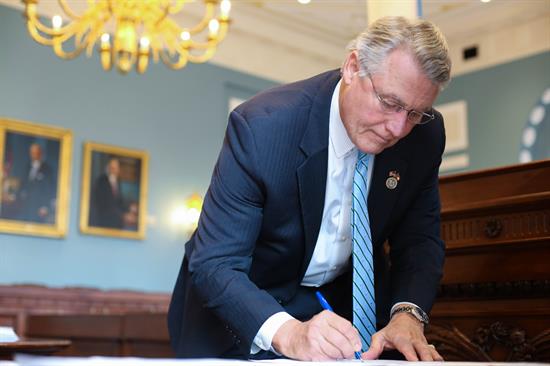Agriculture plays a key role in the economy of Georgia’s 12th district, and is oftentimes the main economic driver of the rural communities which make up so much of our great state. The continued vitality of this sector of the economy has ramifications far beyond that of the families that make their living growing a wide range of commodities like cotton, peanuts, corn, timber, onions, and livestock. As a member of the House Agriculture Committee, I have a unique opportunity to help form policies that impact the agriculture industry. Foremost, the Agriculture Committee is tasked with crafting a new farm bill every five years which authorizes hundreds of programs that are vitally important to the agricultural interests of our state and our country. These programs include research, farm credit, rural development, nutritional programs, food safety, and agricultural support programs, among dozens of other provisions. In December 2018, President Trump signed the most recent Farm Bill into law. As law of the land, the 2018 Farm Bill has strengthened the farm safety net, provided more flexibility for our producers, protected and expanded crop insurance, improved the Supplemental Nutrition Assistance Program (SNAP) – including program integrity, strengthened our efforts to provide quality broadband in rural areas, and much more. As we continue to implement this farm bill, I remain committed to ensuring that we can continue production of the safest, most abundant, and most affordable food supply in the world. During the COVID-19 pandemic, our agriculture industry has faced unprecedented challenges. Sixty percent of our food supply chain is normally wholesale; this was shut down virtually overnight at the beginning of the pandemic. Congress has been able to provide funding both to support farmers who no longer had ready markets for their commodities, and to distribute those fresh foods to people in need, through the USDA Farmers to Families Food Box Program. As of January 19th, 2021, 132.9 million food boxes have been distributed in America in eight months. In the CARES Act, which became law in March of 2020, Congress appropriated $340 million for rural broadband and telehealth infrastructure. This is in addition to over $1.4 billion which Congress has appropriated for the USDA Reconnect program, which awards grants and loans to fund broadband connectivity projects across rural America. Universal access to highspeed internet is paramount for community development and education, and improving rural broadband access is one of the most important issues I support in Congress. In the 117th Congress I have sponsored the Better Agriculture Resources Now (BARN) Act, as I did in previous Congresses. This legislation, if passed, would drastically improve our food supply chain by moving administration of the H-2A visa program from the Department of Labor to the Department of Agriculture. Too often, unnecessary delays in the application process and overall neglect of the program hurt the very people that the program was designed to help – our agriculture producers who provide our nation’s food security. H-2A certification must be managed by an agency with a deep understanding of the food supply chain and its time-sensitive operations, like USDA. I look forward to continue advocating for America’s farmers as a member of the House Agriculture Committee. |



